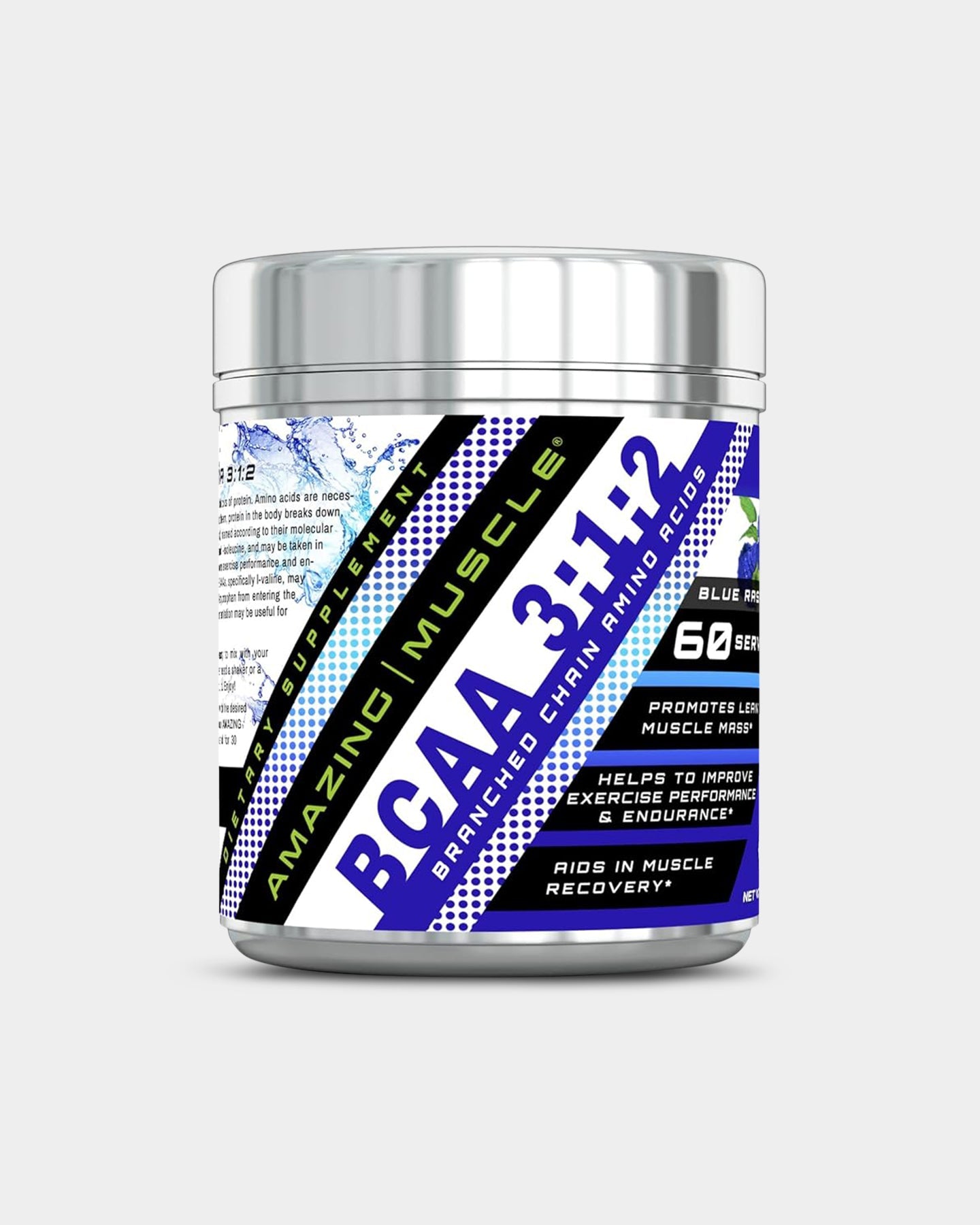Practical Guide to BCAA: Benefit from Effective Supplementation in 2025
The world of fitness and nutrition is constantly evolving, with new supplements and strategies surfacing to enhance athletic performance and overall health. One such supplement that has gained immense popularity over the years is Branched-Chain Amino Acids (BCAAs). In this comprehensive guide, we will explore the benefits, dosages, and effective use of BCAA supplementation in your fitness regimen for 2025 and beyond. With evidence-backed insights, we’ll delve into how BCAAs can assist in muscle building, fat loss, and endurance, making it an essential addition to your diet.
Choosing the right BCAA product can greatly influence your results, so understanding its benefits along with the recommended dosages and timing is crucial. This article will highlight the advantages of BCAAs for both athletes and everyday fitness lovers, providing a roadmap for effective supplementation. Key takeaways will cover daily usage, potential side effects, and tips on incorporating BCAAs into your dietary lifestyle.

Essential Benefits of BCAA for Muscle Growth
Building on the fundamentals of fitness supplementation, BCAAs play a pivotal role in promoting muscle growth and recovery among fitness enthusiasts. Comprised of three essential amino acids—Leucine, Isoleucine, and Valine—BCAAs are known to stimulate muscle protein synthesis and reduce muscle breakdown during intense workouts. Understanding the unique properties of these amino acids can enhance your training results significantly.
How BCAAs Promote Muscle Protein Synthesis
One of the standout benefits of BCAA consumption is its ability to enhance muscle protein synthesis. When you exert yourself during workouts, your body undergoes muscle breakdown. BCAAs, especially Leucine, play a critical role in triggering the anabolic pathway, resulting in muscle repair and growth. Research supports that supplementing with BCAAs post-workout can lead to improved recovery rates, enabling individuals to train harder and more frequently.
Impact of BCAAs on Muscle Breakdown
Muscle breakdown occurs through various metabolic processes, particularly during prolonged or intense physical activity. BCAAs can help mitigate this by providing your muscles with the necessary building blocks to remain strong and resilient. Consistency in BCAA intake before and after workouts can significantly reduce muscle soreness and fatigue, allowing for better performance.
Recommended Dosage for Optimal Muscle Growth
To gain the maximum benefits from BCAAs, knowing the correct dosage is vital. Multiple studies suggest that a dosage range between 5 to 20 grams of BCAAs before or after workouts can be effective. Depending on your body weight, fitness goals, and workout intensity, you may adjust this dosage. It’s advisable to consult a healthcare professional for personalized recommendations.

Effective BCAA Usage for Weight Loss
As fitness enthusiasts strive to achieve their physique objectives, BCAAs emerge as a valuable ally in weight loss efforts. The synergy between BCAAs and fat burning is a fascinating aspect of sports nutrition. Understanding how BCAAs can influence metabolism and fat loss can facilitate healthier lifestyle choices for individuals pursuing weight management goals.
Mechanisms of BCAAs in Fat Burning
BCAAs, particularly Leucine, play a crucial role in regulating blood sugar levels and insulin response. Maintaining stable insulin levels supports fat burning during workouts, which is essential for individuals seeking weight loss. This is particularly beneficial during caloric deficit phases, where maintaining muscle mass is vital while shedding body fat.
BCAAs for Energy during Workouts
Incorporating BCAAs into your pre-workout routine can enhance energy levels, allowing you to perform at your best. This energy contribution can be especially important when aiming for fat loss, as it enables more intense workouts without the body resorting to muscle breakdown for energy. A well-timed BCAA supplementation can thus keep you energized and focused while supporting your fitness goals.
Incorporating BCAAs into Your Diet for Weight Loss
Integrating BCAAs into your dietary plan can be done hand-in-hand with clean eating practices. Consider incorporating BCAA powders into smoothies or consuming BCAA-rich food sources such as eggs, fish, and meat. For those preferring plant-based options, there are BCAA supplements specifically designed for vegetarians. This fusion of BCAAs and healthy eating results in a powerful strategy for effective weight management.
Critical Insights on BCAA Timing for Performance
Moving on from understanding the benefits of BCAAs for muscle growth and fat loss, timing your BCAA intake can greatly influence performance outcomes during workouts. BCAAs can serve as excellent pre- and post-workout supplements, offering unique benefits tailored to various fitness activities.
BCAAs Before the Workout
Consuming BCAAs before workouts prepares your muscles for exercise, potentially reducing perceived exertion during intense physical activities. By replenishing amino acids before hitting the gym, athletes can experience improved endurance and noticeable decreases in fatigue levels, leading to longer and more effective training sessions.
BCAAs After the Workout
Post-workout BCAA supplementation assists in muscle repair and recovery, significantly influencing the overall results of a training program. Immediately following a workout, your muscles are primed for nutrient uptake, making it an optimal time to ingest BCAAs. This restoration phase is vital for muscle growth and reduces recovery time between sessions.
Daily BCAA Intake for Lasting Results
Consistency is key when it comes to BCAA supplementation. Taking BCAAs daily can create a reservoir of amino acids in the bloodstream, ensuring your body has a sufficient supply for ongoing muscle repair and recovery, not only on training days but also during rest periods. This daily practice contributes to long-term fitness progression and visible results over time.
Potential Side Effects and Safety of BCAAs
As with any supplement, understanding the potential side effects and safety measures related to BCAA usage is crucial. While BCAAs are generally considered safe, it is essential to approach its consumption with awareness and discipline.
Common Side Effects of BCAAs
Some individuals may experience gastrointestinal discomfort, fatigue, or headaches when starting BCAA supplementation. It’s essential to listen to your body and adjust dosages accordingly. If discomfort persists, consulting a healthcare professional is advisable to ensure there are no underlying health issues.
Safety Considerations for Special Populations
Particular populations, such as individuals with pre-existing medical conditions or dietary restrictions, should exercise caution with BCAA supplementation. Adhering to recommended doses and considering natural dietary sources of BCAAs can provide an alternative approach while minimizing potential risks.
Long-Term Safety of BCAA Supplementation
Long-term studies on BCAA supplementation indicate minimal health risks when consumed correctly. However, individuals should monitor their overall dietary protein intake to prevent any imbalances in amino acid ratios. Ensuring a well-rounded diet will enhance the benefits of BCAAs while maintaining optimal health.
Conclusion: Making the Most of BCAA Supplementation
In conclusion, BCAA supplementation can be incredibly beneficial for muscle growth, fat loss, and enhanced athletic performance. By understanding its various aspects—from optimal dosages to the best timing for intake—you can maximize the advantages that BCAAs offer. Whether you’re an athlete looking to improve performance or someone wanting to achieve fitness goals, integrating BCAAs into your health regimen can lead to positive outcomes.
For those interested in learning more about specific BCAA products or comparing supplements, credible resources are available for further reading here and here. By arming yourself with knowledge and making informed decisions, you pave the way for success in your fitness journey.
